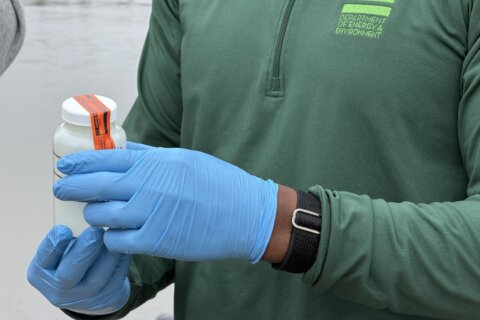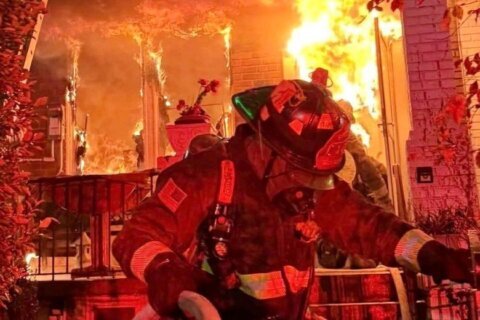From vaping, the cost of school supplies to cellphone policies, the WTOP team is studying up on hot-button topics in education across the D.C. region. Follow on air and online in our series “WTOP Goes Back to School” this August and September.
Ahead of Monday’s first day of classes, D.C.’s Department of Transportation is reminding drivers that zipping around stopped school buses will come with a hefty fine this school year.
The program, which launched in the final weeks of the last school year, added cameras to 25 school bus stop arms. When the bus is stopped — its stop arm is extended and the lights are flashing — cars can’t pass the bus on either side of the road, unless there’s a median in between the two lanes.
Sharon Kershbaum, DDOT’s acting director, said the initiative aims to protect the more than 4,000 students who ride the city’s school buses.
“This is a way to make sure that, as our most vulnerable road users, these are students that are getting on and off buses, that they are safe and they don’t have to worry about cars that are driving by quickly and not seeing them,” Kershbaum said.
- Back on the bus for back to school: Prince George’s County’s drivers talk transportation
- ‘School refusal’: What it means when your child doesn’t want to go to school — and what to do about it
- ‘As a mother of 4 kids, it’s too much’: What a Fairfax Co. mom spends on school supplies — and how she saves
In partnership with the Office of the State Superintendent of Education, DDOT opted to move forward with the program based on its success in other states and cities.
Fairfax County Public Schools, Virginia’s largest school division, is planning to launch a similar program, with cameras on 50 school bus stop arms, this school year.
In D.C., the cameras were only in effect for a few weeks at the end of last year, but Kershbaum is calling this fall the agency’s “major launch.”
A DDOT spokeswoman didn’t immediately have information on the cost of the cameras or data on the number of warnings and citations given out in the weeks after the program started in the late spring.
The cameras capture video of potential violators, and then two DDOT employees review it to confirm whether “the car was driving when it shouldn’t have been,” Kershbaum said.
Then, the incident gets passed to the DMV, which actually sends out the ticket. Passing a school bus with its stop arm extended comes with a $500 fine.
“Our goal is compliance,” Kershbaum said. “We don’t want people to get infractions. We just want people to follow the law.”
While there aren’t immediate plans to expand the program, Kershbaum said the “good things about the buses is that they can be moved to different routes, so it’s not fixed the way some of our other traffic enforcement cameras are.”
Traffic enforcement cameras are usually effective in changing driver behavior, Kershbaum said.
“Success with traffic enforcement is that there are no infractions,” Kershbaum said, “that people understand that there is a big impact, and they’ll feel it in their wallet if they are not complying with the law, and they stop doing it.”
Some critics of the city’s automated traffic enforcement initiatives, including others such as speed and red light cameras, argue they’re intended to drive revenue. But Kershbaum is adamant the focus is safety.
“The fact that there are revenues that the District gains from it, it’s not something that drives our interest in the program, and never has been,” she said.
More information about the stop arm program is available online.
Get breaking news and daily headlines delivered to your email inbox by signing up here.
© 2024 WTOP. All Rights Reserved. This website is not intended for users located within the European Economic Area.








